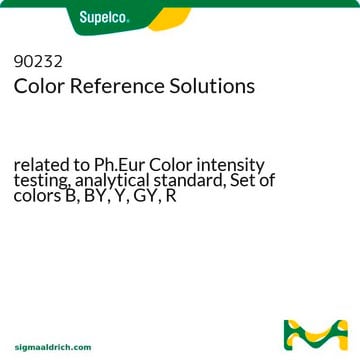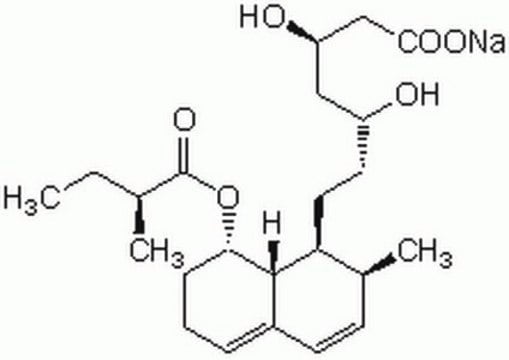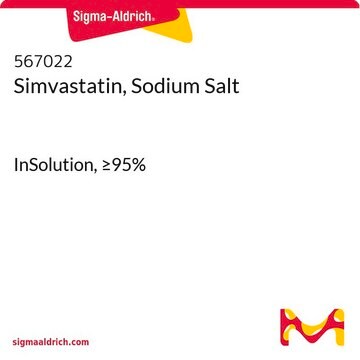438185
Lovastatin
Lovastatin, CAS 75330-75-5, is an anti-hypercholesterolemic agent that inhibits the activity of 3-hydroxy-3-methylglutaryl coenzyme A (HMG-CoA) reductase.
Synonyme(s) :
Lovastatin, Mevinolin, MK-803, L-Type Calcium Channel Blocker IV
About This Item
Produits recommandés
Niveau de qualité
Pureté
≥95% (HPLC)
Forme
powder
Fabricant/nom de marque
Calbiochem®
Conditions de stockage
OK to freeze
protect from light
Couleur
white to off-white
Solubilité
ethanol: 25 mg/mL
DMSO: 50 mg/mL
Conditions d'expédition
ambient
Température de stockage
2-8°C
InChI
1S/C24H36O5/c1-5-15(3)24(27)29-21-11-14(2)10-17-7-6-16(4)20(23(17)21)9-8-19-12-18(25)13-22(26)28-19/h6-7,10,14-16,18-21,23,25H,5,8-9,11-13H2,1-4H3/t14-,15-,16-,18+,19+,20-,21-,23-/m0/s1
Clé InChI
PCZOHLXUXFIOCF-BXMDZJJMSA-N
Description générale
Actions biochimiques/physiologiques
Activity of 3-hydroxy-3-methylglutaryl coenzyme A (HMG-CoA) reductase
Avertissement
Reconstitution
Autres remarques
Carel, K., et al. 1996. J. Biol. Chem.271, 30625.
McGuire, T.F., et al. 1996. J. Biol. Chem. 271, 27402.
Umetani, N., et al. 1996. Biochim. Biophys. Acta1303, 199.
Xu, X.Q., et al. 1996. Arch. Biochem. Biophys. 326, 233.
Reusch, J.E.-B., et al. 1995. J. Biol. Chem.270, 2036.
Jakobisiak, M., et al. 1991. Proc. Natl. Acad.Sci. USA88, 3628.
Keyomarsi, K., et al. 1991. Cancer Res.51, 3602.
Mendola, C.E., and Backer, J.M. 1990. Cell Growth Differ. 1, 499.
Informations légales
Mention d'avertissement
Warning
Mentions de danger
Conseils de prudence
Classification des risques
Carc. 2 - Repr. 2
Code de la classe de stockage
11 - Combustible Solids
Classe de danger pour l'eau (WGK)
WGK 3
Point d'éclair (°F)
Not applicable
Point d'éclair (°C)
Not applicable
Certificats d'analyse (COA)
Recherchez un Certificats d'analyse (COA) en saisissant le numéro de lot du produit. Les numéros de lot figurent sur l'étiquette du produit après les mots "Lot" ou "Batch".
Déjà en possession de ce produit ?
Retrouvez la documentation relative aux produits que vous avez récemment achetés dans la Bibliothèque de documents.
Les clients ont également consulté
Notre équipe de scientifiques dispose d'une expérience dans tous les secteurs de la recherche, notamment en sciences de la vie, science des matériaux, synthèse chimique, chromatographie, analyse et dans de nombreux autres domaines..
Contacter notre Service technique















